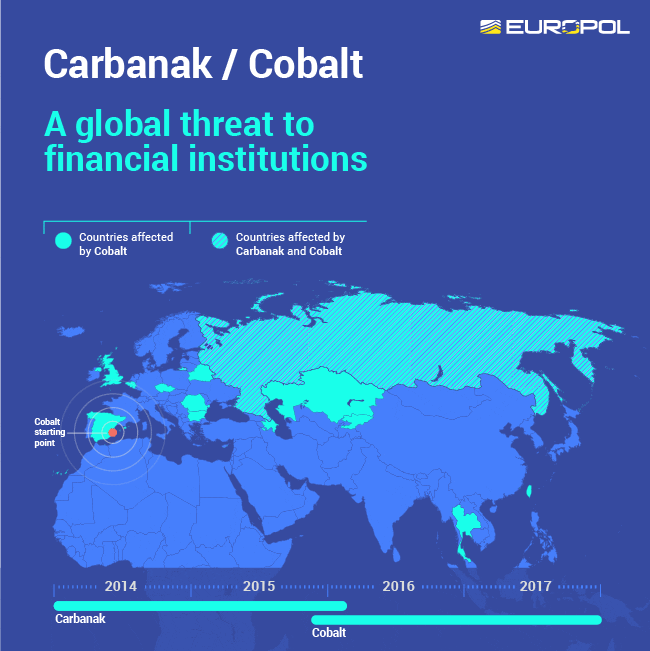According to Europol, the hacker group began committing crimes in 2013 and developed two malicious software named Carabank and Cobalt, which were developed specifically for financial institutions.

Subsequently, the hacking group began sending a large number of emails with malicious code to the bank staff. The malicious code would infect the recipient’s computer and allow hackers to access the bank’s network system.
Once hackers gain access to the banking network system, they will spread malicious software on the bank’s internal network. The malware will affect the bank’s data server and allow the hacker the ability to control the bank’s ATMs.
After gaining access to the bank’s servers, hackers can do whatever they want. They can transfer funds to another bank account, adjust the deposit amount of a certain bank account, force ATM machines to spit cash, and finally be taken away by the members of the group. The stolen money will generally be converted into digital cryptocurrency to achieve money laundering and evade supervision.
The hacking organization has already attacked more than 100 financial institutions. This arrest was successfully implemented after a number of law enforcement agencies worked together. Europol, the U.S. Federal Bureau of Investigation, and police from Spain, Romania, and Taiwan all participated in this hunt.
Steven Wilson, head of the European Cybercrime Centre of Europol, said in a statement: “In the course of this year’s pursuit of top cybercrime gangs, the close cooperation of the global police has made The huge contribution shows that cybercrime can no longer achieve anonymity because of transnational crimes. At the same time, it will also become a successful case in the history of global law enforcement organizations in their joint efforts to combat cybercrime.”
Although there are few specific information about this hacker organization, some previous reports may provide some clues. In 2015, a report released by the Internet security company Group-IB and Fox-IT pointed out that the malware Cobalt is related to hacker groups in Ukraine and Russia.
Source, Image: europol.europa.eu





